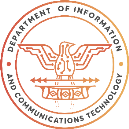Department of Information and Communications Technology
National Cyber Security Strategy 2024 – 2030
Strategy Issue Statement:
Cybersecurity threats pose significant risks to Papua New Guinea’s (PNG) digital infrastructure, critical services, businesses, and citizens. With the rapid digitization of various sectors and the increasing reliance on digital technologies, the nation faces escalating cyber threats that could undermine national security, economic prosperity, and public trust. Recent cyber incidents,such as the IFMS hack of the finance department and the disruptions on “Black Wednesday,” underscore the urgency of bolstering PNG’s cyber defenses. These incidents highlight vulnerabilities in government systems, critical infrastructure, and private enterprises, necessitating a comprehensive and proactive approach to cybersecurity.
Strategy Intent:
The National Cyber Security Strategy (NCSS) aims to fortify PNG’s cybersecurity posture, ensuring secure cyberspace that fosters innovation and prosperity while safeguarding national sovereignty. The policy’s mission is to protect government systems, critical infrastructure, businesses, and citizens from cyber threats through effective governance, risk management, and incident response. By promoting a culture of cybersecurity and fostering international partnerships, PNG aims to mitigate risks and enhance its cybersecurity resilience. The NCSS outlines key objectives, including:
- Protecting Critical Infrastructure: The strategy prioritizes safeguarding essential systems and services vital to PNG’s national security and economic stability. Measures will be implemented to strengthen the resilience of critical infrastructure against cyber threats, ensuring uninterrupted operations and service delivery.
- Promoting Cybersecurity Awareness: The strategy emphasizes the importance of raising public awareness and promoting cybersecurity literacy among citizens, businesses, and government entities. Education and training initiatives will empower individuals to recognize and respond to cyber threats effectively.
- Enhancing Incident Response Capabilities: PNG will enhance its incident response capabilities to detect, analyze, and mitigate cyber threats promptly. Collaboration with international partners and the establishment of dedicated response teams will facilitate rapid and coordinated responses to cyber incidents.
- Facilitating Information Sharing: The strategy encourages collaboration and information sharing among government agencies, private sector entities, and international partners. Enhanced coordination and sharing of threat intelligence will improve situational awareness and enable proactive cybersecurity measures.
- Ensuring Regulatory Compliance: The NCSS will align with existing and forthcoming cybersecurity regulations, ensuring compliance with international standards and best practices. Legal frameworks and policies will be developed to address emerging cyber threats and protect sensitive information.
- Fostering International Partnerships: PNG will engage in international cooperation and partnerships to strengthen its cybersecurity capabilities. Collaboration with regional and global stakeholders will facilitate knowledge exchange, capacity building, and joint initiatives to combat cyber threats effectively.
The National Cyber Security Strategy represents a proactive and comprehensive approach to cybersecurity, reflecting PNG’s commitment to safeguarding its digital infrastructure, promoting economic growth, and protecting the interests of its citizens and businesses in an increasingly interconnected world.
Download Draft Strategy
About Us
External Links
National Broadcasting Corporation
Contact Information
Dept of Information & Communication Technology
PO Box 784
Vision City, National Capital District, PNG
Email:info@ict.gov.pg
Phone: +675 3250171
Location: Islander Drive, Waigani Drive, NCD
Connect with Us
© 2023 Department of Information & Communications Technology I All Rights Reserved.





